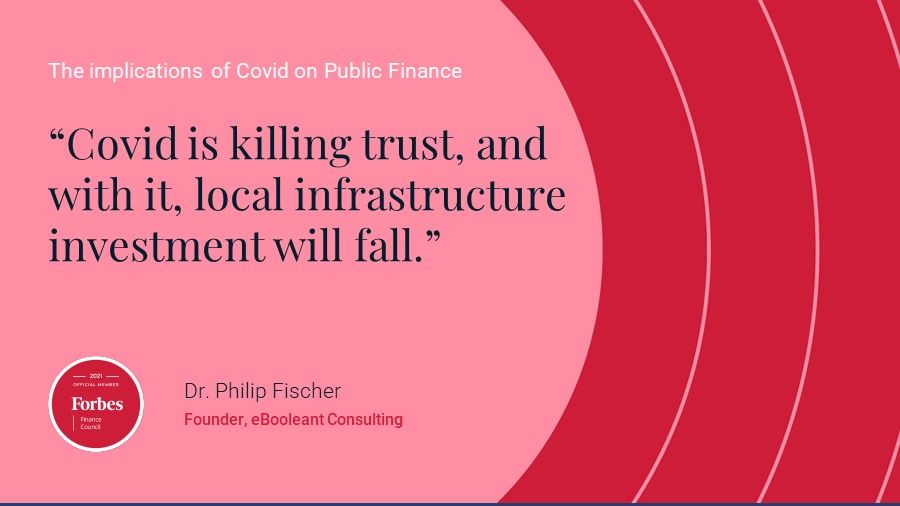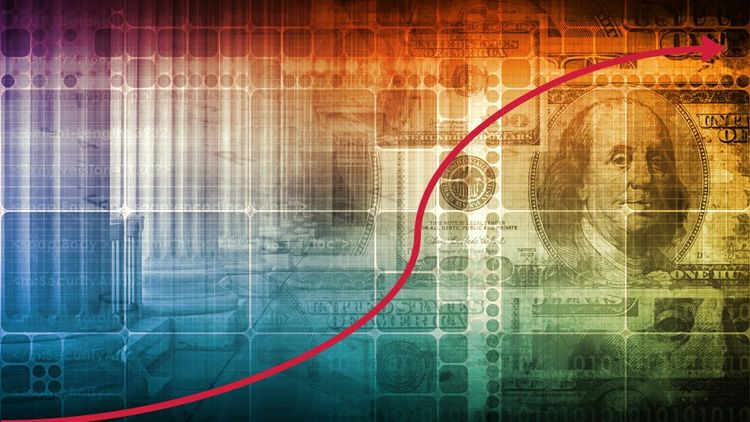The Pandemic Hit on Public Finance

The emergence of a series of COVID variants this year suggests that we are merely in middle of the pandemic and not at its terminus, as we had hoped. While this is not a pleasant thought, the data bears it out. The virus is still mutating, and the human population remains an attractive and viable host.
A pandemic of this scope has historically altered human society in fundamental ways. Our pandemic is critically important, and its social impact is both immediate and long term. Public sector finance needs to appreciate that trust in the future is abating and with it, investments in the future are sure to fall. As the emergency drags on, we should watch as the pandemic puts a drag on state and local government investment. It will do this through isolation and outmigration, labor shortages and a general lack of confidence in the economy.
Isolation by degrees
Plagues are ancient, persistent villains. As Albert Camus observed, “There have been as many plagues as wars in history; yet always plagues and wars take people equally by surprise.” This means that people have had a great deal of experience with plagues but may not have learned from them.
What humans do know is that distancing from one another is their best defense against a plague. But distance between people creates its own tensions in loneliness and separation. Isolation always means separation from public life. Isolation in our times serves to thin out our public lives.
When cholera struck New York City in 1832, those who could ran out of town as quickly as possible using any means, from steamboats to wheelbarrows. This is rational behavior, however, unfair to those left behind or not. In this pandemic, hundreds of thousands of citizens have fled New York City. The highly educated, endowed and politically connected groups tended to leave.
Over time, lower income entrants will replace the individuals running from cities with plagues. It takes time to integrate the new entrants into the social fabric of the city. Even then, they still face all the restrictions of those who never left. For those who remained behind, mandated isolation was the order of the day. In the best scenarios, online meetings and calls as well as face masks helped keep jobs going. But, in this sense, the modern adaptation of quarantine, citizens have more limited economic engagement and almost complete public withdrawal from events and gatherings.

Labor shortages reappear
Prior pandemics in Europe are associated with labor shortages and the rise of the middle class. The labor shortages rose with the intensity of the disease. We are experiencing a version of this pandemic labor shortage. The shortage is undoubtedly the result of the pandemic and a combination of other social problems. We are now seeing increased union activity and rising wages. Our ultimate result, however, will certainly be the adoption of advanced robotics.
Trust deteriorates
For public finance, the pandemic’s most serious long-term effect, however, is undoubtedly the loss of public trust. The Government Finance Officers Association has it right when it says that “trust is as important an asset as any on the balance sheet of a city or state.”
The most obvious consequence of the pandemic experience in our time has been the loss of public trust. Trust in public institutions of all types is at dramatic lows. Loss of public trust is manifest in situations ranging from vaccine hesitancy to the courts.
While public confidence in key institutions has remained constant over these COVID years, it is incredibly low. Gallop reports that only 33% of those surveyed say they have "a great deal" or "quite a lot" of confidence in public institutions. Indeed, public entities like Congress and TV news have critically low values at 12% and 16% respectively. Few have any confidence in them.
COVID is sure to depress these values over the long term. Social trust fell because of the Spanish Flu and we can expect the same for COVID.
Value of Public Assets Declines
For public finance that means a further loss in trust in state and local institutions. Long after the federal funds are gone, the COVID effect will remain with fewer bridges and bonds from the local governments and more dependence on Washington for infrastructure. Trust is the most important pillar of any public institution or structure.
We hope you enjoyed this article. Please give us your feedback.





